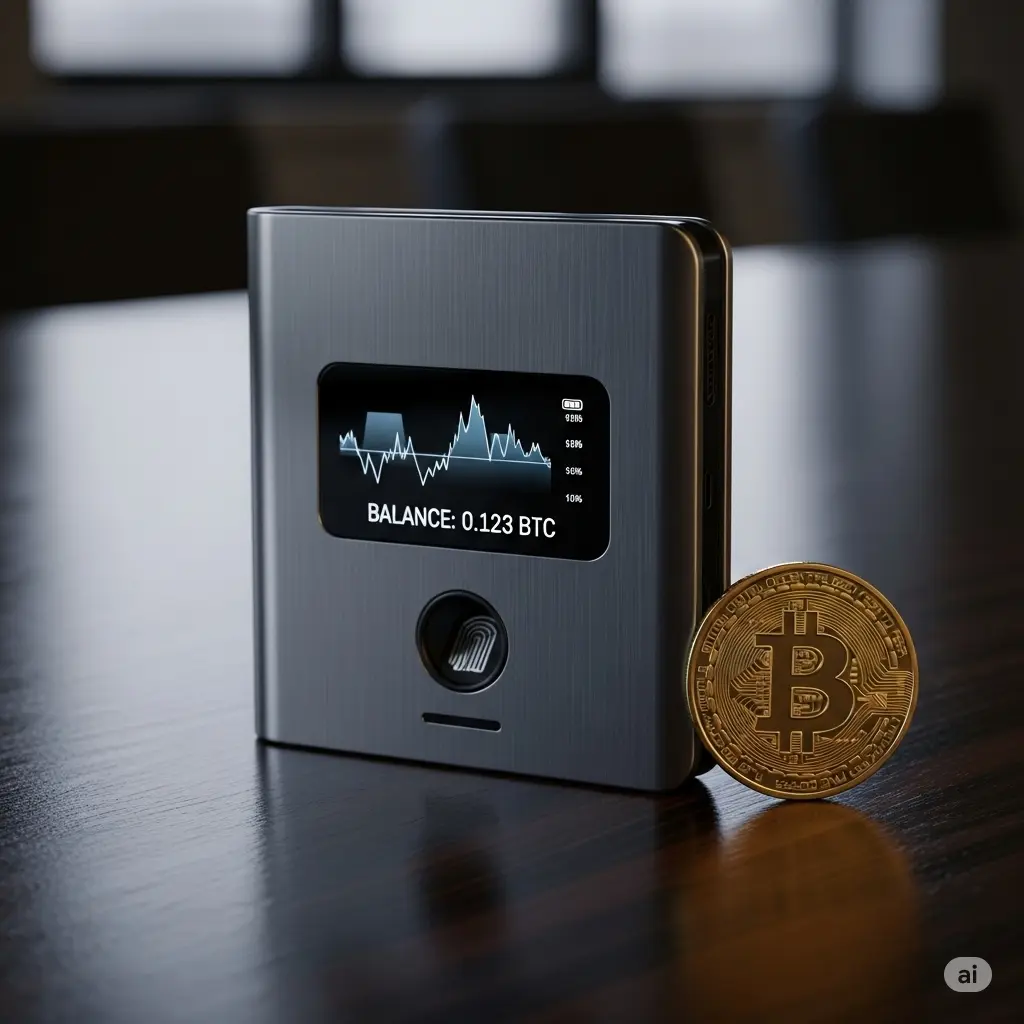In 2025, the cryptocurrency landscape continues to evolve at a breakneck pace, with new coins, decentralized finance (DeFi) platforms, and blockchain innovations emerging daily. As cryptocurrencies gain mainstream adoption, securing your digital assets has never been more critical. A Secure Crypto Wallet is your gateway to managing, storing, and transacting cryptocurrencies safely. But with so many options—hot wallets, cold wallets, hardware wallets, and mobile wallets—how do you choose the best crypto wallet 2025 has to offer?
The stakes are high. A single mistake, like losing your seed phrase or falling victim to a phishing scam, could result in the loss of your entire portfolio. Add to that the complexities of crypto taxation laws, which vary across jurisdictions, and the need for a secure, reliable wallet becomes undeniable. Whether you’re a beginner dipping your toes into Bitcoin or an intermediate investor exploring Global Crypto Sports betting platforms, this guide will walk you through everything you need to know to select a secure crypto wallet in 2025. Let’s dive into the essentials of crypto wallet security, explore the types of wallets, and provide actionable steps to protect your investments.
What Is a Crypto Wallet? A Beginner-Friendly Explanation
A Secure Crypto Wallet is a software program or physical device that stores the private and public keys needed to interact with a blockchain. Unlike a traditional wallet, it doesn’t hold physical currency but provides access to your digital assets, such as Bitcoin, Ethereum, or altcoins. Think of it as a keychain: your private key unlocks your funds, while your public key allows others to send you crypto.
Key Terms to Understand
To navigate the world of crypto wallets, let’s clarify some essential terms:
- Blockchain: A decentralized, digital ledger that records all cryptocurrency transactions securely.
- Private Key: A secret code that gives you control over your crypto. Losing it means losing access to your funds.
- Public Key: A shareable address used to receive crypto.
- Seed Phrase: A 12-24 word phrase that acts as a backup to recover your wallet. Guard it like your life depends on it!
- Hot Wallet: An online wallet connected to the internet, ideal for frequent transactions.
- Cold Wallet: An offline wallet, such as a hardware wallet, designed for long-term storage.
- Decentralized Wallet: A wallet where you control your private keys, not a third party.
- DeFi: Decentralized finance, a system of financial applications built on blockchain technology.
- Web3: The next generation of the internet, emphasizing decentralization and user ownership.
Understanding these terms will help you make informed decisions about crypto wallet security and comply with crypto taxation laws in your region.

Types of Crypto Wallets: Which One Suits You?
Choosing the best crypto wallet 2025 offers depends on your needs, trading frequency, and risk tolerance. Below, we break down the main types of wallets, their features, and their suitability.
Hot Wallets: Convenience Meets Risk
Hot wallets are software-based wallets connected to the internet, making them ideal for daily transactions, such as trading on exchanges or betting on Global Crypto Sports platforms. They come in various forms:
- Mobile Wallets: Apps like Trust Wallet or MetaMask allow you to manage crypto on your smartphone. They’re user-friendly and perfect for beginners.
- Web Wallets: Browser-based wallets, often integrated with exchanges like Coinbase or Binance.
- Desktop Wallets: Software installed on your computer, such as Exodus.
Pros:
- Easy to use and access.
- Ideal for small, frequent transactions.
- Often free or low-cost.
Cons:
- Vulnerable to hacks, phishing, and malware.
- Less secure than cold wallets due to internet connectivity.
Best for: Beginners, traders, and users engaging in Global Crypto Sports betting or DeFi.
Cold Wallets: Maximum Security for Long-Term Storage
Cold wallets are offline storage solutions, making them the gold standard for crypto wallet security. They include:
- Hardware Wallets: Physical devices like Ledger Nano X or Trezor Model T that store your keys offline.
- Paper Wallets: A printed piece of paper with your private and public keys, though less common in 2025 due to complexity.
Pros:
- Highly secure against online threats.
- Ideal for storing large amounts of crypto.
- Supports wallet backup through seed phrases.
Cons:
- Less convenient for frequent transactions.
- Initial cost for hardware wallets (typically $50-$150).
- Risk of physical loss or damage.
Best for: Long-term investors and those prioritizing security over convenience.
Decentralized Wallets: Full Control, Full Responsibility
Decentralized wallets give you complete control over your private keys, unlike custodial wallets where a third party (e.g., an exchange) holds them. Examples include MetaMask and Trust Wallet.
Pros:
- No reliance on third parties.
- Compatible with DeFi and Web3 platforms.
- Enhanced privacy.
Cons:
- Requires careful management of your seed phrase.
- No customer support if you lose access.
Best for: Intermediate users comfortable with self-custody and DeFi enthusiasts.
Crypto Wallet Security: Protecting Your Assets in 2025
With cyber threats on the rise, crypto wallet security is non-negotiable. Hackers target poorly secured wallets, and crypto taxation laws mean authorities are watching transactions closely. Here’s how to stay safe:
The Importance of Your Seed Phrase
Your seed phrase is the master key to your wallet. If you lose it, you lose your funds. If someone else gets it, they can steal everything. Follow these tips:
- Never store it digitally: Avoid screenshots or cloud storage.
- Write it down: Use a physical notebook or metal backup device.
- Keep it private: Never share it, even with trusted contacts.
- Use a safe: Store your seed phrase in a fireproof, waterproof safe.
Real-World Example: In 2023, a Reddit user lost $120,000 in Bitcoin after storing their seed phrase in a cloud service that was hacked. Don’t make the same mistake!
Hot Wallet Security Tips
- Enable two-factor authentication (2FA) on mobile wallets or exchange accounts.
- Use strong, unique passwords.
- Avoid public Wi-Fi when accessing your wallet.
- Regularly update your wallet software to patch vulnerabilities.
Cold Wallet Security Tips
- Store your hardware wallet in a secure location.
- Verify the device’s authenticity to avoid tampered products.
- Use a wallet backup by splitting your seed phrase across multiple secure locations.
Staying Compliant with Crypto Taxation Laws
Crypto taxation laws vary globally, and wallets play a role in tracking transactions for tax purposes. For example:
- In the U.S., the IRS treats crypto as property, requiring you to report capital gains.
- In the EU, regulations like MiCA (Markets in Crypto-Assets) mandate transparency in transactions.
- Global Crypto Sports platforms may report high-value transactions to tax authorities.
Choose a wallet that integrates with tax software like Koinly or CoinTracker to simplify compliance.
Pros and Cons of Crypto Wallets in 2025
Hot Wallets
Benefits:
- Quick access for trading or spending.
- Free or low-cost options.
- Seamless integration with Global Crypto Sports and DeFi platforms.
Risks:
- Susceptible to hacks and phishing.
- Limited security for large holdings.
Cold Wallets
Benefits:
- Unmatched security for long-term storage.
- Protection against online threats.
- Peace of mind for high-value portfolios.
Risks:
- Higher upfront costs.
- Inconvenient for frequent use.
Decentralized Wallets
Benefits:
- Full control over your funds.
- Access to Web3 and DeFi ecosystems.
- Privacy-focused.
Risks:
- No recovery options if you lose your seed phrase.
- Steeper learning curve for beginners.

Actionable Advice for Choosing the Best Crypto Wallet in 2025
Whether you’re new to crypto or an intermediate investor, follow these steps to select the best crypto wallet 2025 has to offer:
For Beginners
- Start with a Hot Wallet: Download a reputable mobile wallet like Trust Wallet or Coinbase Wallet. They’re easy to set up and use.
- Practice with Small Amounts: Test your wallet with a small amount of crypto to learn how it works.
- Secure Your Seed Phrase: Write it down and store it offline immediately.
- Enable 2FA: Add an extra layer of security to your wallet and exchange accounts.
- Research Crypto Taxation Laws: Understand your country’s tax requirements to avoid penalties. For example, Global Crypto Sports transactions may be taxable.
For Intermediate Investors
- Invest in a Hardware Wallet: Purchase a hardware wallet like Ledger Nano X for secure long-term storage.
- Diversify Storage: Use a hot wallet for trading and a cold wallet for savings.
- Explore Decentralized Wallets: Experiment with decentralized wallets like MetaMask for DeFi and NFT projects.
- Regularly Back Up: Update your wallet backup strategy to protect against loss or theft.
- Stay Updated: Follow Global Crypto Sports for the latest trends and wallet recommendations.
Questions to Ask Before Choosing a Wallet
- Do I need a wallet for frequent trading or long-term holding?
- Am I comfortable managing my own seed phrase?
- Does the wallet support the cryptocurrencies I own?
- Is the wallet compatible with crypto taxation laws in my country?
- Does it offer integration with Global Crypto Sports or other platforms I use?
Case Study: A Beginner’s Journey to Secure Crypto Storage
Meet Sarah, a 30-year-old teacher who started investing in Bitcoin in 2024. Excited about Global Crypto Sports betting, she initially used a hot wallet (Coinbase Wallet) for convenience. However, after reading about a high-profile exchange hack, she decided to upgrade her crypto wallet security. Sarah purchased a Ledger Nano X hardware wallet, wrote down her seed phrase, and stored it in a fireproof safe. She kept a small amount in her mobile wallet for betting and trading, while moving her larger holdings to the cold wallet. By integrating her wallet with tax software, she also ensured compliance with crypto taxation laws in her country. Sarah’s proactive approach saved her from potential losses and gave her peace of mind.
Frequently Asked Questions (FAQ)
1. What is the best crypto wallet for beginners in 2025?
For beginners, mobile wallets like Trust Wallet or Coinbase Wallet are ideal due to their user-friendly interfaces and low cost. Always secure your seed phrase and enable 2FA.
2. Are hardware wallets worth the investment?
Yes, hardware wallets like Ledger or Trezor are worth it for long-term storage, especially for large portfolios. They offer unmatched crypto wallet security against online threats.
3. How do I protect my seed phrase?
Write your seed phrase on paper or a metal backup device, store it in a secure location (like a safe), and never share it or store it digitally.
4. What’s the difference between a hot wallet and a cold wallet?
A hot wallet is online and convenient for frequent use, while a cold wallet is offline and more secure for long-term storage.
5. How do crypto taxation laws affect my wallet choice?
Some wallets integrate with tax software to track transactions, helping you comply with crypto taxation laws. Check your country’s regulations and choose a wallet with reporting features.
6. Can I use a crypto wallet for Global Crypto Sports betting?
Yes, many hot wallets and decentralized wallets are compatible with Global Crypto Sports platforms. Ensure the wallet supports the cryptocurrencies used on the platform.
7. What happens if I lose my crypto wallet?
If you lose access to your wallet but have your seed phrase, you can recover your funds. Without the seed phrase, your crypto is likely lost forever.
Conclusion: Secure Your Crypto Future Today
Choosing the best crypto wallet 2025 offers is a critical step in protecting your digital assets and navigating the complexities of crypto taxation laws. Whether you opt for the convenience of a hot wallet, the security of a cold wallet, or the autonomy of a decentralized wallet, prioritizing crypto wallet security is essential. By safeguarding your seed phrase, enabling 2FA, and staying informed about Global Crypto Sports trends, you can invest with confidence.
Ready to take control of your crypto journey? Start by researching wallets that suit your needs, secure your wallet backup, and stay updated with the latest insights from Global Crypto Sports. Share this guide with fellow investors, and let’s build a safer, smarter crypto community together!






